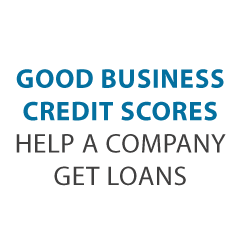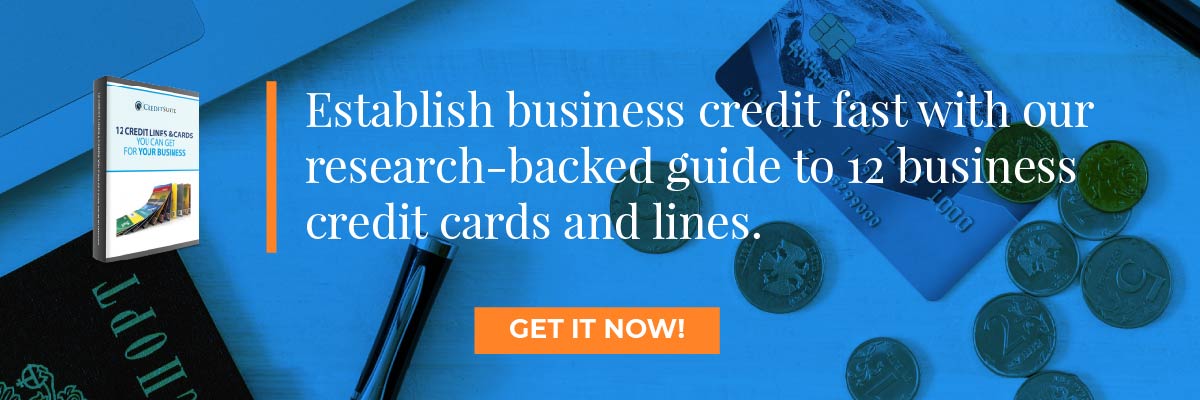- Connect With Us!
- (877) 600-2487
- info@creditsuite.com
Credit Lines Versus Business Loans… How to Know Which Option Works Best for You
Published By Janet Gershen-Siegel at August 16th, 2017
Credit Lines versus Business Loans: Which one is better?
When trying to get small business funding, you have inevitably come across both ways to get cash. And that’s great! But when it comes to credit lines versus business loans, which one is truly better for YOUR business?
Every small business needs to borrow money at some times in its history. Whether that is to take advantage of a real estate or equipment deal, or to cover payroll, or ride out lean times, it does not matter. A small business just needs money and does not have the cash on hand at the time it needs those funds.
Credit lines are the amount of credit available to your business. So this is often when you have a business credit card. Business loans are, as you might expect, money from lenders. And they must be paid back with interest. While you are wondering how business credit scores work, the truth is, both of these options are factors.
They are both answers to questions about what affects business credit score. And they are both places where to establish business credit.
So read on, and learn what your competitors might not even know.
Credit Lines versus Business Loans: Credit Lines
Credit is a lot like small, short loans. However, the advantage of credit – a huge advantage – is that interest does not start to kick in until you are late with the payments. If you are never late with paying back credit, you are not going to be charged any interest on it.
Furthermore, credit lines can come from a lot of different places. Some of these less traditional credit lines have far less stringent requirements than others. And many of them are a lot less strict about your credit history than business lenders are.
 Credit Lines
Credit Lines
A credit line, or line of credit (LOC), is an agreement between a borrower and a financial institution or private investor which sets a maximum loan balance which a borrower can access.
A borrower can access funds from their line of credit at any time, as long as they don’t go over the maximum set in the agreement, and so long as they meet all other conditions of the finance institution or investor like making prompt payments.
Advantages
Credit lines deliver many distinct benefits to borrowers which include versatility. Borrowers can apply their line of credit and just pay interest on what they use, unlike loans where they pay interest on the total borrowed. Credit lines can be re-used, so as you acquire a balance and pay that balance off, you can use that available credit again, and again.
Details
Credit lines are revolving accounts similar to credit cards, and compare to various other kinds of financing such as installment loans. Often, lines of credit are unsecured, much the same as credit cards are. There are some credit lines which are secured, and for this reason easier to be granted
Credit lines are the most commonly sought after loan type in the business world although they are popular, authentic credit lines are unusual, and hard to find. Many are also very challenging to get approval for calling for good credit, good time in business, and good financials. But there are various other credit cards and lines which few know about that are available for start-ups, bad credit, as well as if you have absolutely no financials.
The SBA
A lot of credit line kinds that most business owners think of come from traditional banks and traditional banks use SBA loans as their key loan product for small business owners. This is because SBA assures as much as 90% of the loan in the event of a default. These credit lines are the hardest to get approval for because you must qualify with SBA and the bank.
SBA Loans
There are two main varieties of SBA loans you can typically obtain. One kind is CAPLines. There are really 5 types of CAPLines that can work for your small business.
You can also obtain a smaller loan amount more quickly using the SBA Express program. Most of these programs offer BOTH loans and revolving lines of credit.
From the SBA … “CAPLines is the umbrella program under which SBA helps business owners meet short-term and cyclical working capital needs”. Loan amounts are offered up to and including $5 million. Loan qualification requirements are the same as with other SBA programs.
Seasonal Line
This one advances against anticipated inventory and accounts receivables. It was developed to aid seasonal businesses. Loan or revolving kinds are on offer.
Contract Line
This one finances the direct labor and material costs of performing assignable contracts. Loan or revolving types are available.
Builders Line
This one was made for general contractors or builders constructing or renovating business or residential buildings. This line is for fund direct labor-and material costs, where the building project works as the collateral. Loan or revolving types are available.
Standard Asset-Based Line
This line is for companies not able to meet credit standards accompanying long-term credit. It is financing for cyclical growth, recurrent and/or short-term needs. Repayment results from converting short-term assets into funds. Businesses constantly draw from the LOC, based on preexisting assets, and repay as their cash cycle determines. This line normally is for companies that supply credit to other companies.
Small Asset-Based Line
This is a revolving line of credit of up to $200,000. This line works like a standard asset-based line except that a number of the stricter servicing requirements are foregone, if the business can consistently show repayment capability from available resources for the sum total.
SBA Express
You can get approval for as much as $350,000. Interest rates differ, with SBA allowing banks to charge as much as 6.5% over their base rate. Loans above $25,000 will call for collateral.
Approval Details
To get approval you’ll need great personal and business credit. Plus the SBA specifies you must not have any blemishes on your report. An acceptable bank score requires you have at least $10,000 in your account over the most recent 90 days.
You’ll likewise need a resume showing you have market experience and a well put together business plan. You will need three years of business and personal tax returns, and your business returns should show a profit. And, you’ll need a recent balance sheet and income statement, therefore showing you have the cash to pay back the loan.
Collateral
To get approval you’ll need account receivables, but only if you have them. As for the collateral to counterbalance the risk, typically all company assets will serve as collateral, and some personal assets which also include your residence. It’s not unusual to need collateral equivalent to 50% or more of the loan amount. You also need articles of incorporation, business licenses, and contracts with all third parties, and your lease.
Establish business credit fast with our research-backed guide to choosing between credit lines versus business loans.
Private Investors and Alternative Lenders
Private investors and alternative lenders also grant credit lines. These are a lot easier to qualify for than conventional SBA loans. They also require much less documentation for approval. These alternative SBA credit lines usually call for good personal credit for approval.
Unlike with SBA, many of them don’t demand good bank or business credit approval. Many of these sorts of programs require two years’ of tax returns. Tax returns must demonstrate a profit. Rates can vary from 7% or more and loan amounts range from $25,000 into the millions. Loan amounts are often based on the revenues and/or profits on tax returns. In some cases lenders may want other financials including a profit and loss statement, balance sheets, and income statements.
Merchant Cash Advances
Merchant cash advances have quickly become the most popular way to get financing, in large part thanks to the simple qualification process. Companies with $10,000 in profits can get approval, with the business owner having scores as low as 500.
Some sources have now even begun to offer credit lines that accompany their loans. You must have at least $10,000 in revenue for approval. You ought to be in business for at least one year, however three years is better. Lenders normally want to see a credit score of 650 or better for approval.
Loan amounts are often about $20,000. Lenders normally will pull your business credit, so you ought to have some credit already and at times lenders will want to see tax returns.
Rates vary, due to the risk for this program, and there aren’t a lot of funding sources who offer it.
Stocks/Bonds as Collateral for Financing
You can get financing despite personal credit if you have some type of stocks or bonds. You can also get approval if you have someone intending to use their stocks or bonds as collateral for financing.
Personal credit quality doesn’t matter as there are no consumer credit requirements for approval. You can get approval for as much as 90% of the value of your stocks or bonds. Rates are typically less than 2%, making this one of the lowest rate credit lines you’ll ever see. You can nevertheless earn interest as you generally do on your stocks and bonds.
Establish business credit fast with our research-backed guide to choosing between credit lines versus business loans.
Credit Cards and Lines are Very Similar
Credit cards normally offer 0% intro rates for up to two years. This is also rather handy for startups especially. And credit lines let you take out more cash at a more affordable rate than do cards. These are the primary two differences which will affect you between credit cards and credit line.
Investopedia even says that “lines of credit are potentially useful hybrids of credit cards.”
Both cards and lines are revolving credit. Credit lines are more difficult to get approval for as card approvals are normally very fast, many times automated, while line require an in-depth underwriting review. Lines usually offer lower rates, according to Bankrate card rates average 13% while lines average 4%.
Establish business credit fast with our research-backed guide to choosing between credit lines versus business loans.
Unsecured Business Credit Cards
A lot of these cards report to the consumer credit reporting agencies. They all demand a personal guarantee from you. You can get approval usually for one card max as they stop approving you when you have two or more inquiries on your report.
Most credit card providers feature business credit cards including Capital One, Chase, and American Express. These have rates similar to consumer rates and limits are also similar.
Some report to the consumer reporting agencies, some report to the business bureaus. Approval requirements resemble consumer credit card accounts.
Inquiries
Frequently, when you apply for a credit card you put an inquiry on your consumer report. When other lenders see these, they won’t approve you for more credit for the reason that they don’t know how much other new credit you have recently obtained.
So they’ll only approve you if you have no more than two inquiries on your report within the most recent six months. Anymore will get you declined.
Unsecured Business Financing
With this form of business financing, you deal with a lender who concentrates on securing business credit cards. This is a very rare; very little know of program that few lending sources offer. They can often get you three to five times the approvals that you can get on your own.
This is because they are familiar with the sources to apply for, the order to apply, and can time their applications so the card issuers won’t refuse you for the other card inquiries. Individual approvals ordinarily range from $2,000 – 50,000.
The result of their services is that you normally get up to five cards that simulate the credit limits of your highest limit accounts now. Multiple cards generate competition, and this means they will raise your limits, frequently within 6 months or fewer of first approval.
Approvals
Approvals can go up to $150,000 per entity such as a corporation. With UBF they actually get you three to five business credit cards that report only to the business credit reporting agencies. This is significant, something most lenders don’t offer or advertise. Not only will you get funds, but you build your business credit also so in three to four months, you can then use your new corporate credit to get even more money.
Rates
The lender can also get you very low introductory rates, generally 0% for 6-18 months. You’ll then pay normal rates after that, typically 5-21% APR with 20-25% APR for cash advances. And they’ll also get you the best cards for points. So this means you get the best rewards.
Just like with anything, there are big benefits in teaming up with a source who concentrates on this area. The results will be much better than if you try to go at it alone.
Qualifications
You must have excellent personal credit now, ideally 685 or better scores, the same as with all business credit cards. You shouldn’t have any derogatory credit on your report to get approval. And you must also have open revolving credit on your consumer reports right now and you’ll need to have five inquiries or less in the most recent six months reported.
Fees
All lenders in this space charge a 9-15% success based fee and you only pay the cost off of what you secure. Keep in mind, you get a lot of added perks and about three to five times more cash through this program than you’d get on your own, which is why there’s a fee, the same as all other lending programs.
You can get approval making use of a guarantor and you can even use a number of guarantors to get even more money. There are also other cards you can get utilizing this very same program but these cards only report to the consumer reporting agencies, not the business reporting agencies. They are consumer credit cards versus business credit cards.
Benefits
They offer similar benefits such as 0% intro annual percentage rates and five times the amount of approval of a solitary card but they’re much easier to get approval for.
You can get approval with a 650 score and seven inquiries (or fewer) in the most recent six months and you can have a bankruptcy on your credit and other derogatory items. These are a lot easier to get approval for than UBF company credit cards.
With all previous cards above, you need to have good consumer credit in order to get approval but what happens if your personal credit is not good, and you don’t have a guarantor?
This is when building company credit makes a great deal of sense even if you have good personal credit, building your company credit helps you get even more money, and in the absence of a personal guarantee.
Credit Lines versus Business Loans: Business Loans
While one issue with a business loan is interest, another is whether you can get one at all. For new businesses in particular, your corporate credit will be poor and, by definition, have very little history behind it.
As a result, traditional lenders are going to be less than enthusiastic about offering up business loans. After all, they have no idea whether your company will be able to pay back the loan. They will also, often, take out a UCC blanket lien if they do give you a loan. This is a notice which goes on your credit report that the lender has an interest in all of your business’s assets. That sticks until you pay off the loan in full.
Personal Guarantees
Therefore, many of them will also require personal guarantees. If they do not, then you are generally looking at unsecured business loans, and those come with hefty interest rates. These kinds of business loans can be short term. So you need to pay them back fast.
Or they can be receivables financing. This is where you get a loan based on business you expect to be coming in. It’s because you have outstanding invoices your own clients have not paid to you yet. Or it can be merchant cash advances. These all come with interest rates which are often 40% or higher.
Credit Lines versus Business Loans: Your Business Will Be Affected Either Way
Either way you go your business credit score will be affected by your repayment habits. Make sure those are good ones. Because poor credit habits will always cost you.

 " class="attachment-blog-single size-blog-single wp-post-image" alt="Get Business Credit Cards for New Businesses Credit Suite-Business Line of Credit Decoded" title="Get Business Credit Cards for New Businesses">>
" class="attachment-blog-single size-blog-single wp-post-image" alt="Get Business Credit Cards for New Businesses Credit Suite-Business Line of Credit Decoded" title="Get Business Credit Cards for New Businesses">>